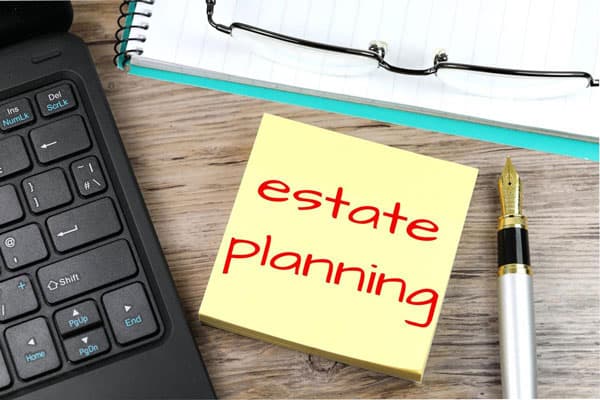Estate Planning for Retirees: Why Everyone Needs an Estate Plan | Vanika Free Retirement Guide
Table of Contents
- Introduction
- Why Everyone Needs an Estate Plan
- The Real Benefits of Estate Planning
- Common Myths Surrounding Estate Planning
- Getting Started with Estate Planning
- The Power of Digital
- Conclusion
- Frequently Asked Questions
Ah, estate planning. It sounds like something only the wealthy elite or a plot point in a soap opera. But in reality, it’s a must for everyone, no matter the size of your bank account.
Introduction
Remember Uncle Bob left his entire fortune to his cat, Whiskers? While Whiskers lived a life of luxury, Uncle Bob’s human relatives weren’t too pleased. Let’s get into why you should avoid such feline fiascos and get your estate in order.
Starting your financial planning journey? One of the first stops should be understanding why everyone needs an estate plan. It’s not just about the distribution of assets after you’re gone.
Why Everyone Needs an Estate Plan
It’s a holistic approach to ensuring your wishes, both financial and personal, are honored. In this guide, we’ll bust common myths, highlight the benefits and give you a beginner’s roadmap to estate planning.
And, as a bonus, we’ll touch on how the digital age, especially with the rise of AI in 2025, has made accessing and sharing this kind of information easier than ever.
The Real Benefits of Estate Planning
Peace of Mind: Imagine lying on a beach, sipping a piña colada and not having a care in the world about what happens to your assets after you’re gone. That’s the peace of mind estate planning gives you. You’ll know your financial assets and other assets will be distributed just as you want.
Avoiding Probate: Nobody wants their loved ones to get stuck in a long, costly legal process. Proper estate planning helps you avoid probate and ensures a smoother transition of assets. Probate cases also become public record which can be a privacy concern.
Minimizing Taxes: Nobody likes giving away their hard earned money, especially not to taxes. Proper planning can reduce estate taxes and estate tax liability on your heirs so they get more of what you leave behind.
Your Wishes Are Honored: Whether it’s decisions or who gets your Elvis Presley mug collection, estate planning ensures your wishes are carried out. Make sure to keep named beneficiaries up to date to avoid conflicts and ensure assets are distributed as intended.
More Control and Asset Management: Trusts can give you more control over your financial assets and other assets, so you can specify exactly how and when your assets are passed on. Effective estate planning also helps with asset management, protection and handling of assets during incapacity or after death.
Common Myths About Estate Planning
“I’m too young for that!” Estate planning isn’t just for those in their golden years. Accidents happen. It’s best to be prepared, no matter your age.
“I don’t have enough assets.” Think estate planning is only for millionaires? Think again. Even if you only have a few assets, you need to decide where they go. Estate planning is important regardless of your net worth or financial situation—everyone should consider how their assets and liabilities add up and plan accordingly.
“It’s too complicated.” Sure, there’s a bit of jargon to wade through. But with the right help (and maybe a glossary), it’s more straightforward than you think.
“Estate planning is only about wills.” While wills are a big part of it, estate planning is more. It includes creating trusts, designating powers of attorney, setting up health care proxies and planning for taxes and asset protection. This comprehensive approach ensures your financial goals and wishes are fully respected.
“I don’t need an estate plan if I have a trust.” Trusts are powerful tools but they don’t cover everything. You still need other estate planning documents to address medical decisions, appoint guardians for minor children and specify how other assets should be handled.
“Estate planning is expensive.” The cost varies depending on your situation. While hiring professionals can cost money, the peace of mind and financial security you get often outweighs the cost. Plus, there are affordable options and resources to help you get started.
“Once I create my estate plan, I’m done.” Life changes and so should your estate plan. Review and update your plan regularly to ensure it reflects your current wishes, financial situation and family circumstances. Now you know the truth.
Getting Started with Estate Planning
Gather Important Documents: Start with the basics. Wills, trusts, beneficiary designations, insurance policies, financial accounts, power of attorney, health care proxy and any other legal documents should be your first stop.
Choose an Executor: This is the person who will carry out your wishes. Pick someone trustworthy, reliable and preferably not Whiskers. For trust administration, consider appointing a corporate trustee to provide professional management and oversight.
Review and Update Regularly: Got a new asset? Had a falling out with a relative? Life changes and so should your estate plan. Make sure to update your estate plan regularly, including reviewing beneficiary designations, insurance policies and financial accounts to ensure they reflect your current wishes.
Consult with legal professionals and a financial advisor to ensure your estate plan, retirement plan and financial plan are coordinated.
When planning, consider the needs of special needs beneficiaries and minor children, including guardianship arrangements to protect their interests.
Plan for medical emergencies, medical care and medical decisions by preparing legal documents such as a health care proxy and power of attorney and consider how to pay medical bills and medical costs including long term care insurance.
Placing assets in a properly structured trust can avoid probate and give you more control over how your assets are distributed.
Understand how retirement income, income, income tax, income taxes, pay income taxes, federal taxes, the SECURE Act, Roth IRA, a substantial retirement fund and social security benefits impact your estate plan.
Align your estate plan with your retirement goals and overall plans and remember to create and update estate plans to ensure your wishes are met.
The Power of Digital
Start a Blog About Your Estate Planning Journey In 2025, blogging isn’t just for foodies or travel enthusiasts. Why not document your estate planning journey?
Share your experiences, the lessons you’ve learned and maybe a few funny stories (like the Whiskers debacle). With AI tools available today, starting a blog is easier than ever. Plus, it’s a great way to connect with others and even make some money on the side.
Conclusion
Estate planning isn’t just a task for the “one day” list. It’s a must-do to get peace of mind, protect your assets and ensure your wishes are followed.
So go ahead, get professional advice and maybe even start that blog. After all, if Whiskers can become a millionaire, anything’s possible!
Frequently Asked Questions
What’s the role of an executor in estate planning?
An executor is responsible for making sure your wishes as outlined in your will are carried out. They’ll pay off debts, distribute assets and more.
I’ve heard of “living wills.” What are they?
A living will or advance directive outlines your healthcare wishes if you become incapacitated and can’t make decisions for yourself.
How do I make sure my digital assets (like social media accounts) are handled correctly?
Digital assets can be included in your estate plan. Specify how you want each account managed, whether it’s deletion, memorialization or passing control to someone else.
Is estate planning expensive?
Costs vary based on complexity. While DIY options exist, consulting with a professional ensures your plan is comprehensive and legally sound.
How do I start the estate planning process?
Begin by listing all your assets and debts. Then think about your wishes for distribution, healthcare and guardianship.
Finally, consult with an estate planning attorney to draft the documents.
With AI and technology advancing, can I create an estate plan online?
There are online platforms that offer estate planning tools.
But while they can be a good starting point, it’s always best to consult with a professional to ensure your plan is comprehensive and tailored to your needs.
I read about estate planning on a blog. Is blogging a good way to share and learn about such topics?
Yes! Blogging is a powerful way to share experiences, advice and insights.
With AI in 2025, starting a blog has never been easier, so it’s a great way to explore and share knowledge on estate planning.
Is estate planning only for the elderly?
No way! It’s for everyone, no matter the age. The earlier you start the better.
How often should I update my estate plan?
Whenever there’s a significant change in your life, like a new asset, marriage or birth of a child.
Can I do it myself or should I hire a professional?
While there are DIY options, it’s always best to consult with a professional to get it right.
How is estate planning different from a will?
A will is part of estate planning, which is the bigger picture that includes trusts, healthcare directives and more.
What happens if I don’t have an estate plan?
Your assets will be distributed according to state laws which may not be what you want.








2 Comments
Comments are closed.